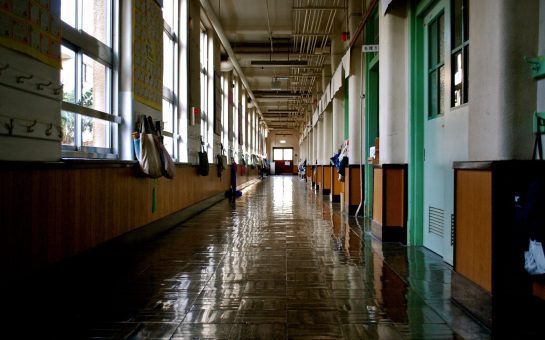Merton Council spent £5,681,246 on special school education for 95 pupils in 2012-13.

Political opposites set aside their differences to defend Merton Council’s decision to spend more than £300,000 on a year’s private secondary education for one disabled child.
The £304,272 payment, made during the last academic year, was revealed after Merton and 123 other local education authorities responded to Freedom of Information requests by the MailOnline.
A subsequent FOI inquiry by SWLondoner found that Merton Council spent a total of £5,681,246 on independent or non-maintained special school education for 95 pupils in 2012-13.
But Labour Councillor Maxi Martin, Merton’s Cabinet Member for Children’s Services, was joined by the Conservative Group Leader, Councillor Oonagh Moulton, in defending the payment.
Cllr Martin said: “Doesn’t it sound like an awful lot of money when you hear it in a little block like that? But what we need to try and understand – and maybe people don’t always – is that some of our young people live with complex disabilities, and they have to be our top priority.
“We can’t dismiss these children from our lives. We have a legal duty to provide the right support.”
The £304,272 payment secured out-of-borough residential schooling for one year for a child with complex needs, requiring 24-hour care. Included in the sum were a 38-week school placement and holiday cover.
Cllr Moulton said: “Obviously we want to support children as much as we can in our own schools in the borough, and avoid paying either for large amounts out of borough or for extraordinary levels like this, but occasionally that sort of level is required.
“This child has severe and profound and complex needs, so there is medical support required for that child. This is the problem for a lot of authorities, not least our own.”
Cllr Martin added that while the council is steadily increasing in-borough provision, it would be impractical for Merton to provide every kind of specialist facility.
The councillors’ unified support for the value of specialist placements came as Claire Dorer, Chief Executive of the National Association of Independent Schools & Non-Maintained Special Schools, described reader comments on last month’s MailOnline article as “heartbreaking”.

She emphasised the need to raise awareness of the real costs involved in educating young people with complex SEN, as well as the positive impact that a high standard of education can have later in life.
“This is an invest-to-save spend really – it’s about intervening whilst the child is young enough that you can make a difference in their life, that you can help them manage their condition – even if it’s going to be lifelong. You can maximise their chances of being happy and healthy and making a real contribution, whether that’s paid employment or social enterprise.
“The idea that you could somehow spend much less money hiding these people away I find really offensive – and then we get to things like the Winterbourne View scandal where you see what happens when young people with disabilities are hidden away and maltreated.”
She added, “What tends to make placements more expensive is that when you’ve got young people who are exhibiting very challenging behaviours – often children with very severe mental health or behavioural or emotional needs, children with very complex autistic spectrum conditions – they may need two staff members with them at all times.
“They may need the whole environment adapted so that they can cope with being in school, which means anything from room sizes to noise insulation, colour of walls, windows: you name it, our buildings have to be able to adapt.”
In fact, a report undertaken by Baker Tilly for NASS last year found that placements at independent or non-maintained schools can often provide cheaper overall support for a child than the cost of equivalent LA provision.
“Most local authorities will look only at teaching and learning costs, and the national median for that is around £26,000 a year,” Ms Dorer said. “But that doesn’t include any therapies, it doesn’t include any social work support, it doesn’t include things like the local authority overheads, buildings; it doesn’t include transport.
“If you really added up what it would cost to offer a particular service to a young person, actually weekly boarding ends up as being a relatively cheap option and day placements again end up as being potentially cheaper than local authority equivalent packages.”
Such findings will become particularly pertinent in September 2014 when, under the Children and Families Bill 2013, new “education, health and care plans” will replace the current system of SEN Statements and separate Learning Difficulty Assessments.
By law, education, health and social care services will be required to work together to plan support for individuals up to the age of 25.
Additionally, parents will have the right to express a preference towards schools outside of LA control, and the burden of proof will shift from families, to prove it is the right placement, onto the LA, to prove that it is not.
These changes, Claire Dorer hopes, should encourage more local authorities to think about the aggregate cost of educating a child with SEN rather than considering only what falls into their specific budget.
She said: “I think that local authorities will have to think about whole child costs, and I think education health and care plans focus their attention a bit more explicitly on the different types of needs.”
Follow us @SW_Londoner




